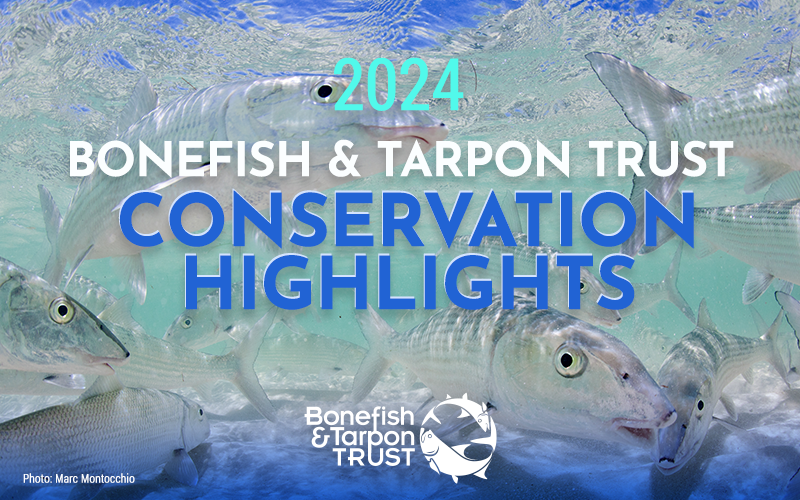Thanks to your advocacy and generous support, BTT has advanced its mission with great impact in 2024! From innovative research to on-the-ground conservation action, we are making real progress in our efforts to improve water quality, conserve vital habitats and ensure effective fisheries management in Florida, The Bahamas, Belize and Mexico. We hope you will take a moment this holiday season to celebrate the many accomplishments that follow below, all of which were made possible by your commitment and support.
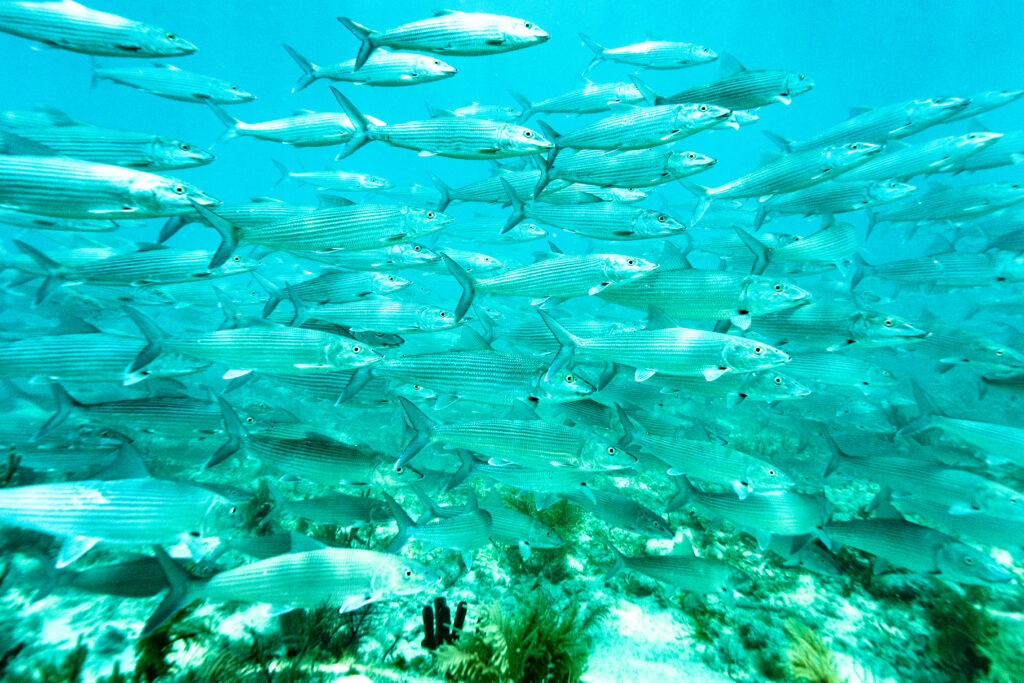
Bonefish Spawning Site Research and Protection
Following the groundbreaking discovery of a bonefish pre-spawning aggregation (PSA) in the Upper Keys in April of 2023, BTT continued to work with state and federal partners in 2024 to ensure that the newly documented spawning site is protected. At the same time, BTT expanded its search to a suspected spawning site in the Lower Keys near Key West. With the help of local fishing guides, our scientists have documented seven spawning events in the region thus far, each one drawing us ever closer to the Lower Keys PSA site.
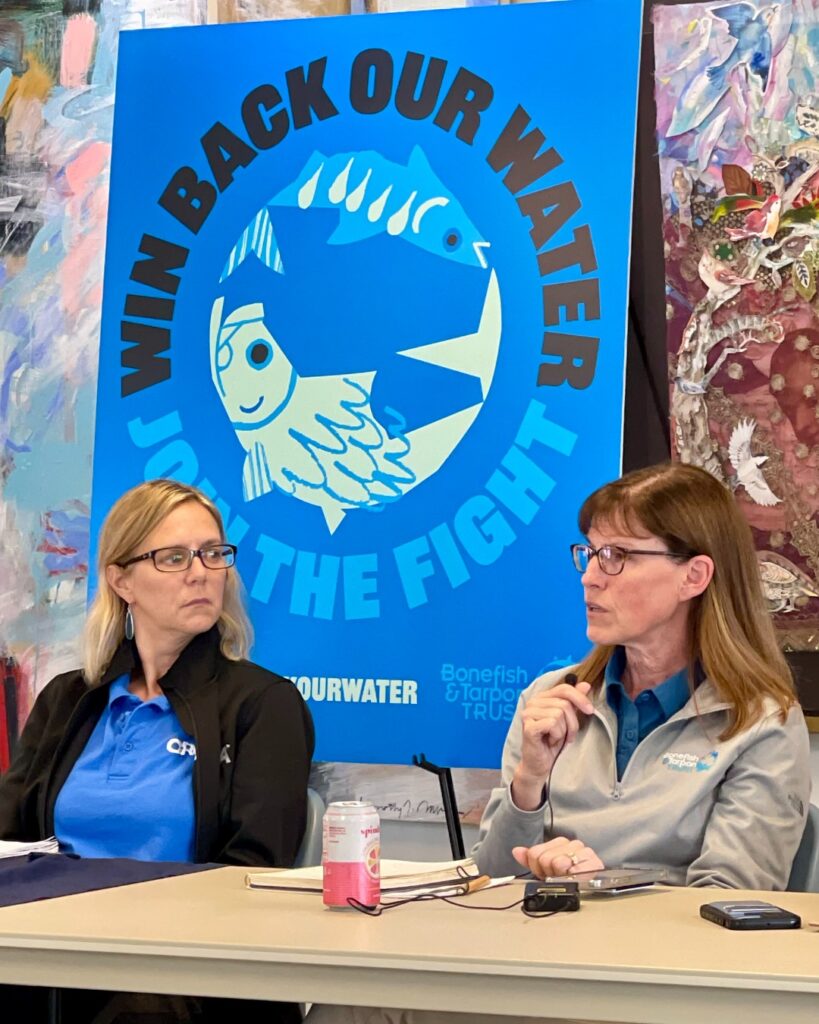
Improving Water Quality
BTT worked broadly on water quality issues in Florida during 2024, from supporting historic appropriations for Everglades restoration to launching the Win Back Our Water campaign to raise awareness of the threats to our state’s water quality. In the 2024 legislative session, BTT helped to secure $850 million for Everglades restoration and $535 million for targeted water quality improvements aimed at achieving nutrient reductions in key waterways. BTT also supported passage of the federal Water Resources Development Act of 2024 (WRDA) and the inclusion in this act of water storage north of Lake Okeechobee (LOCAR). BTT’s efforts on LOCAR, received public recognition from the South Florida Water Management District.
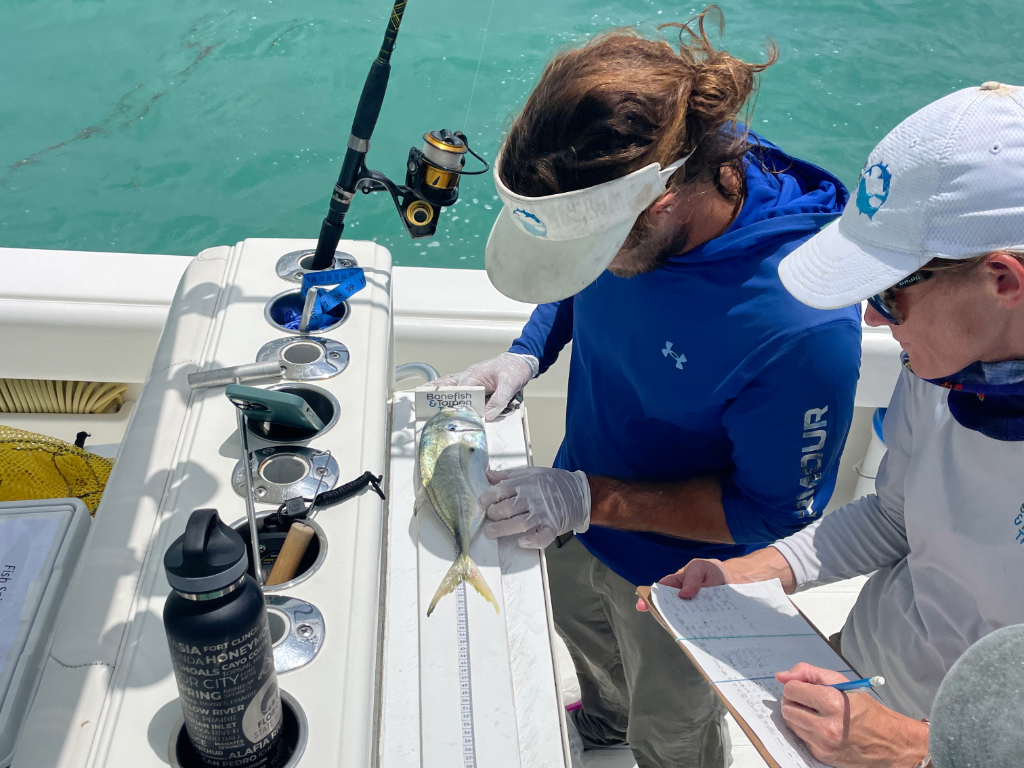
BTT and Partners Research “Spinning Fish” Phenomenon
BTT and several partners initiated new research in 2024 to address a suspected toxin affecting multiple Florida Keys fish species with abnormal “spinning” behaviors. The inter-institutional study is funded by $1.75 million that was awarded to BTT by the State of Florida through the Florida Fish and Wildlife Conservation Commission (FWC) to research the scale and scope of the ongoing mortality and disease event in Biscayne Bay, Florida Bay, and the Florida Keys. Specifically, the funds will support data collection and analysis, and employ local fishing guides to assist with sampling efforts.
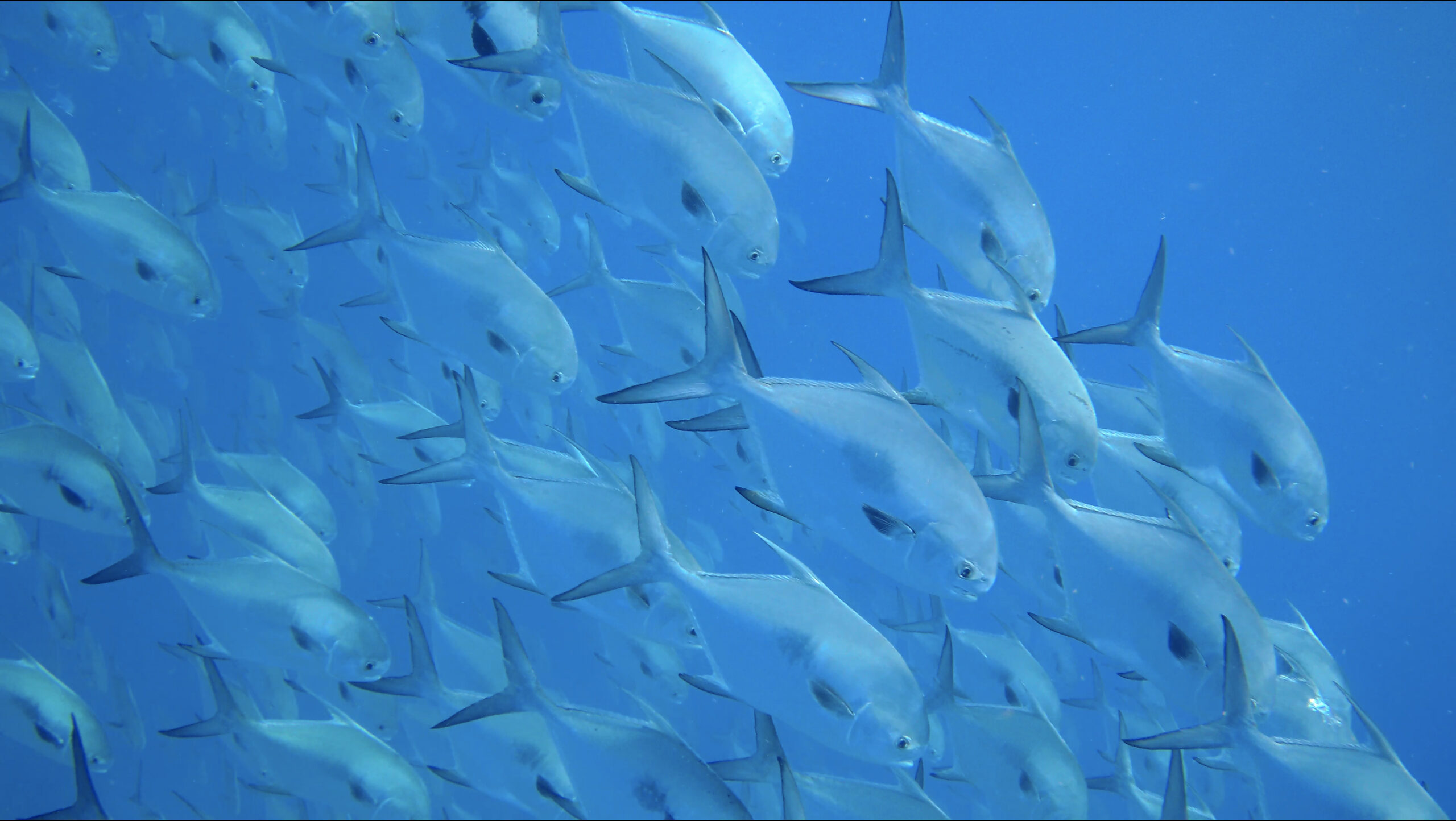
Protecting Lower Keys Spawning Permit
Thanks to BTT’s past research and successful advocacy, spawning permit at Western Dry Rocks in the Florida Keys are now protected by a seven-year spawning season closure, which runs April-July. BTT completed in 2024 the third year of monitoring at WDR, collecting data that will assist resource managers in evaluating the effectiveness of their management action. At the same time, BTT has launched a set of new permit research projects, in collaboration with Keys fishing guides, to assess changes in the local population.
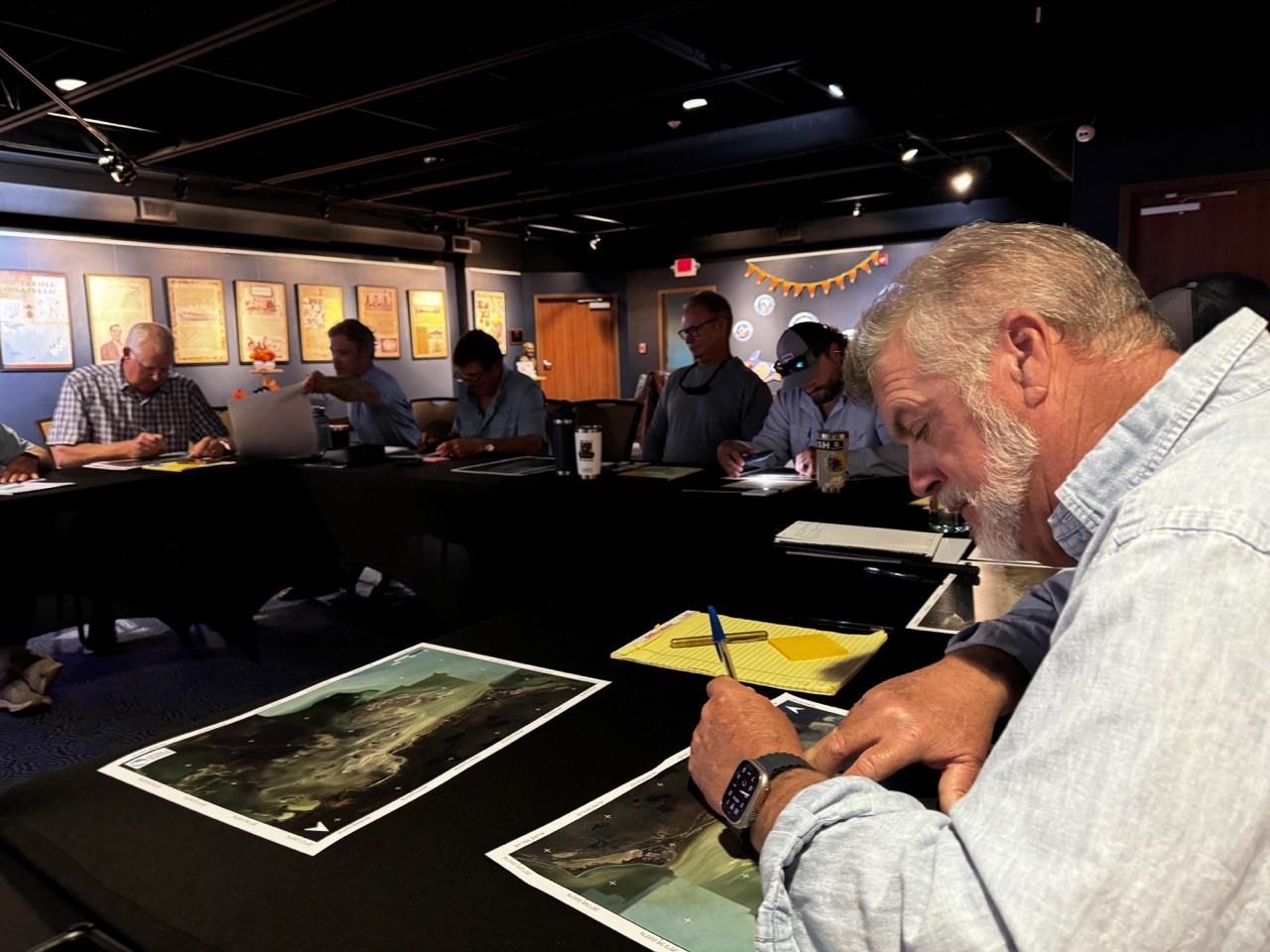
Addressing Shark Depredation
Shark-angler interactions are on the rise. BTT launched a new project in 2024 to document shark depredation in Florida waters by species, location, season and fishing method. Initial steps in this study have included a survey of inshore anglers and a workshop conducted with fishing guides to identify depredation hot spots. In 2025, our researchers will conduct field studies of shark behavior, diet, and movement to better understand the causes of shark-angler interactions and to develop science-based solutions for fisheries management.
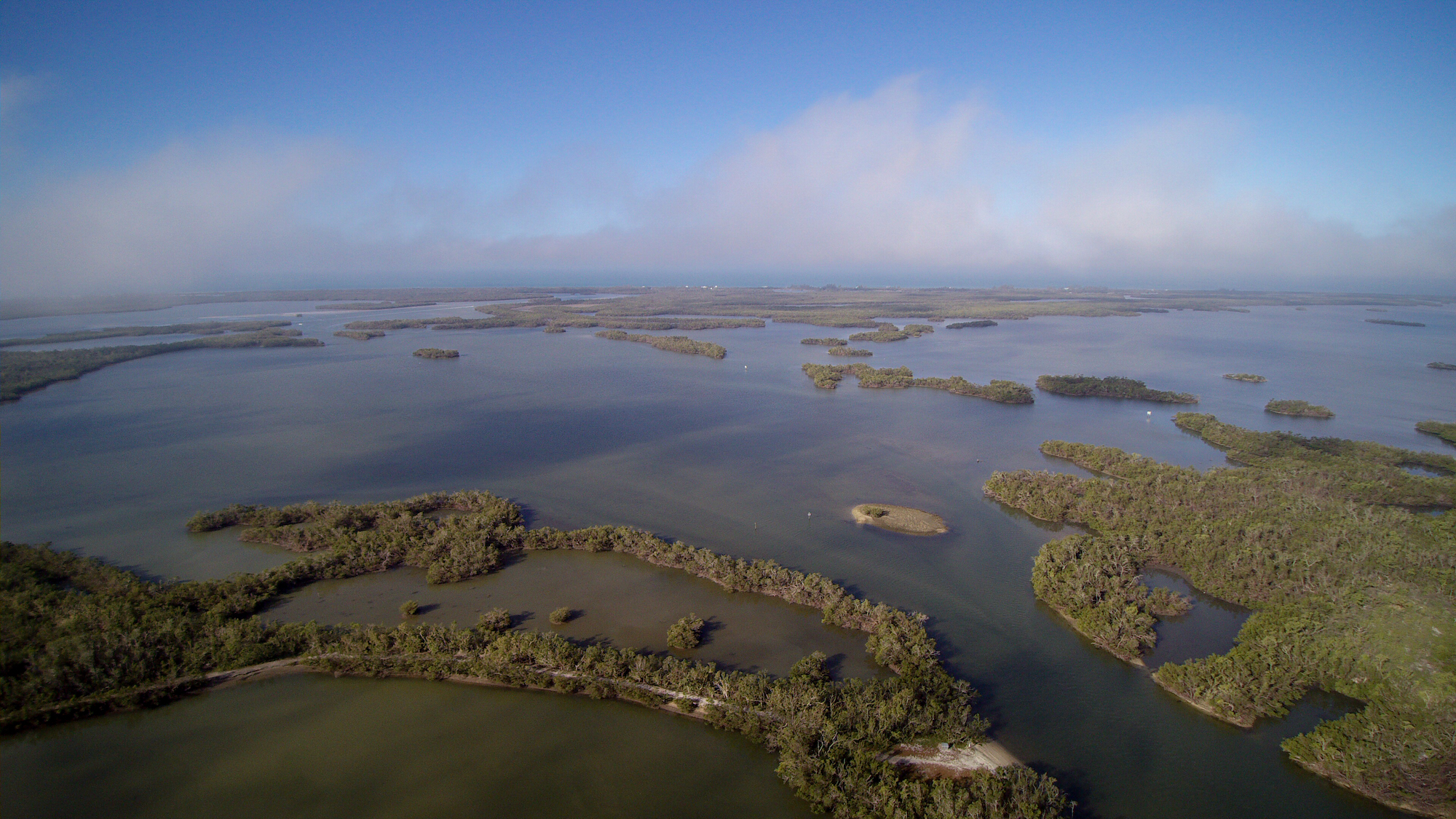
Habitat Restoration in Southwest Florida
BTT completed in 2024 the first phase of planning for two hydrologic restoration projects in Rookery Bay, which will enhance more than 1,000 thousand acres of marsh and mangrove habitat for juvenile tarpon and snook and increase coastal resilience in Southwest Florida. At the same time, BTT and partners continued their work to protect juvenile sportfish habitats in Charlotte Harbor by creating a vulnerability index (VI). The completed index will be shared with the Charlotte County’s land use planning department to help guide future development decisions in ways that conserve these vital habitats.
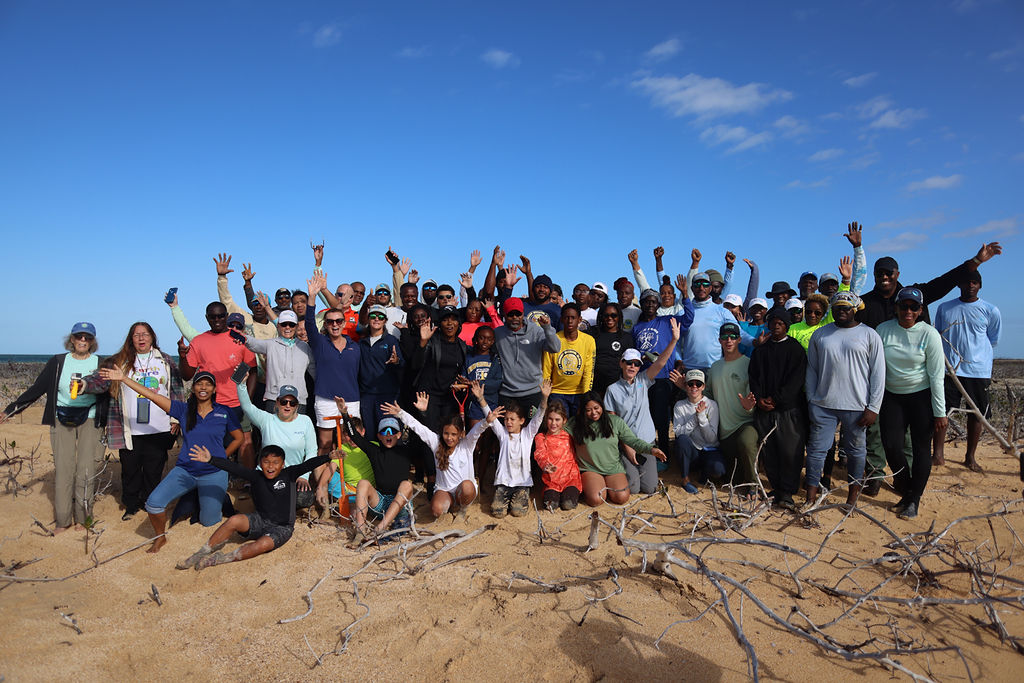
Bahamas Mangrove Restoration Project Reaches Milestone
BTT has worked with Bahamian fishing guides, volunteers, communities, schools and partner organizations over the past five years to restore a mangrove system decimated by Hurricane Dorian. In December, the Bahamas Mangrove Restoration Project achieved the important milestone of planting 100,000 mangroves in areas of Grand Bahama and Abaco hit hardest by the Category 5 storm. To ensure impact at scale, BTT and partners in the Bahamas Mangrove Alliance (BMA), a multi-organization coalition committed to mangrove restoration and conservation, have pledged to plant 1 million mangroves by the end of 2025!
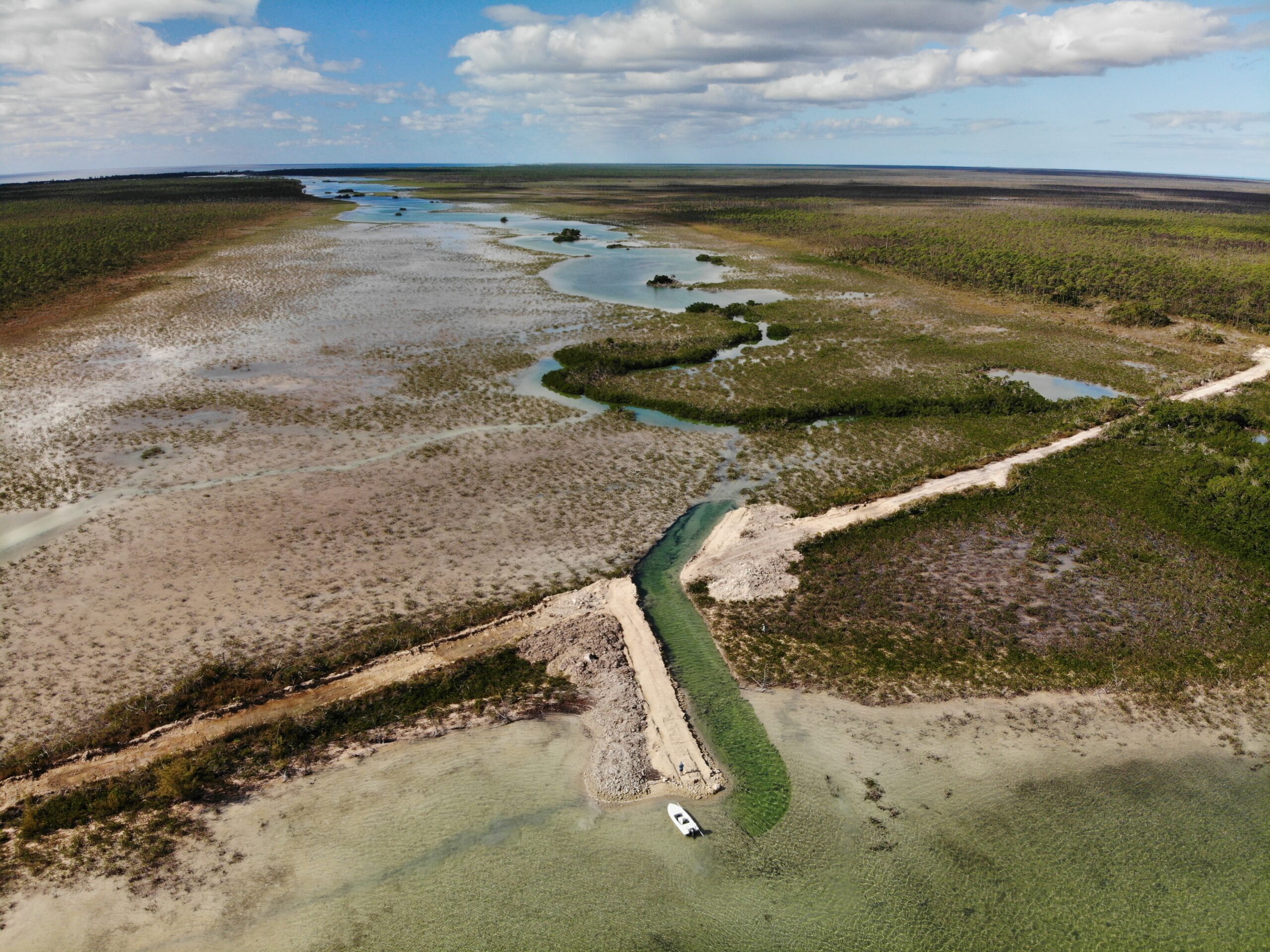
Restoring Natural Flows to Mangrove Creek Systems
BTT signed a Memorandum of Understanding with The Bahamas Ministry of Works in 2024 to restore West Gap Creek and August Creek, two tidal creek systems on Grand Bahama’s East End that have been impacted by past development. The two restoration projects will focus on removing the West Gap Creek Causeway and the Snapper Island Causeway, which currently obstructs August Creek. This restoration effort will improve water quality, reestablish natural water flows, and reconnect fish to flats habitats that have been inaccessible for decades. Additionally, the work will expand fishing grounds in the East End, benefiting local bonefish guides and improving the overall health of the fishery. Once these projects are completed, BTT will continue identifying other significant creek systems that need restoration across Grand Bahama and other Bahamian islands.
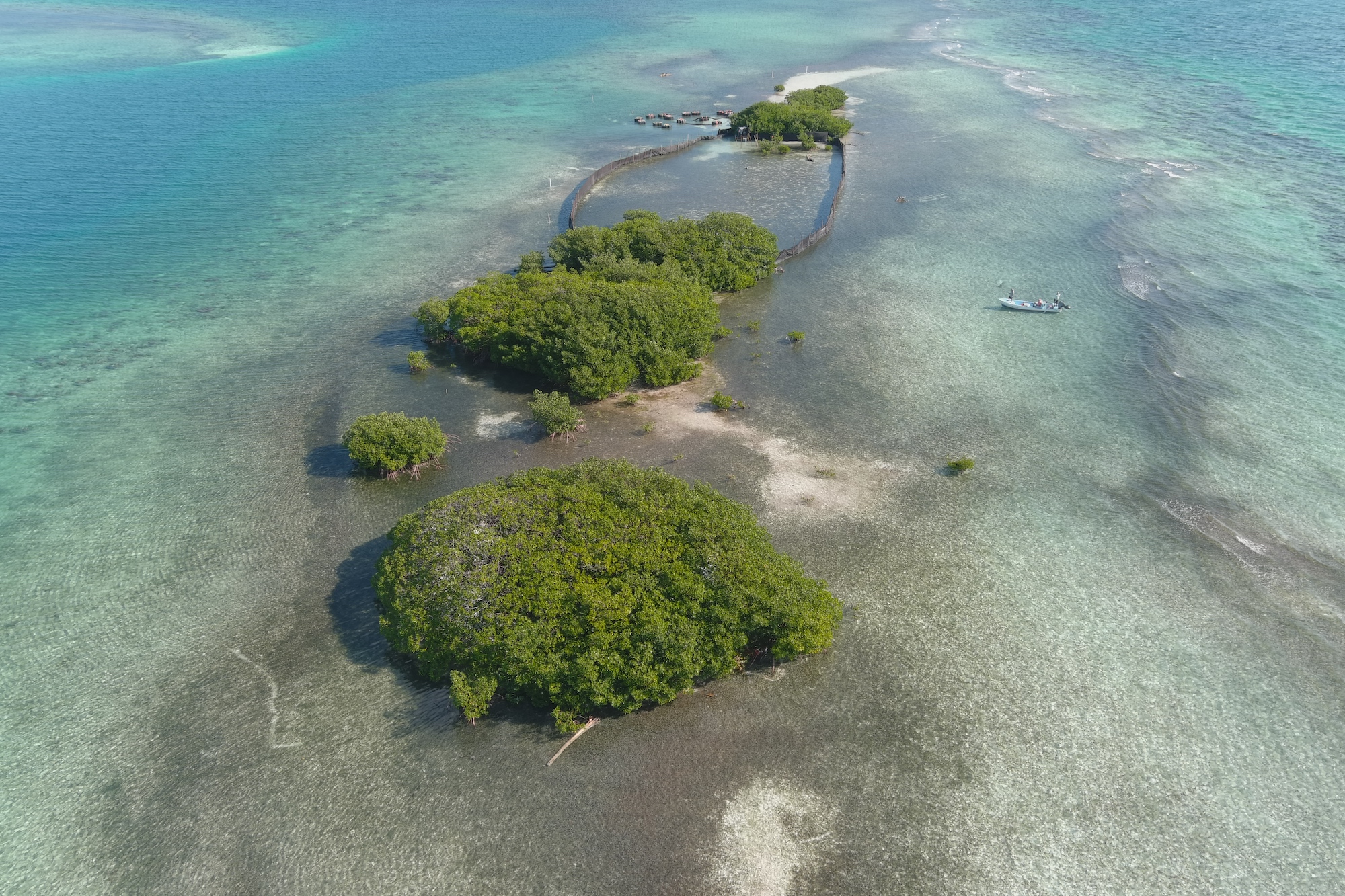
Belize’s Angelfish Caye Spared from Development
BTT joined the Belize Flats Fishery Association (BFFA) in 2024 in opposing a proposed development at Angelfish Caye that would have destroyed vital mangrove, seagrass, and coral reef areas. Thanks to the advocacy of local fishing guides and the responsible actions of the government, this ecologically and economically important area will be acquired by the Government of Belize for conservation. BTT will continue to work with the BFFA and other partners in Belize to oppose unwise coastal development that would harm flats habitat and the fisheries and communities it supports.
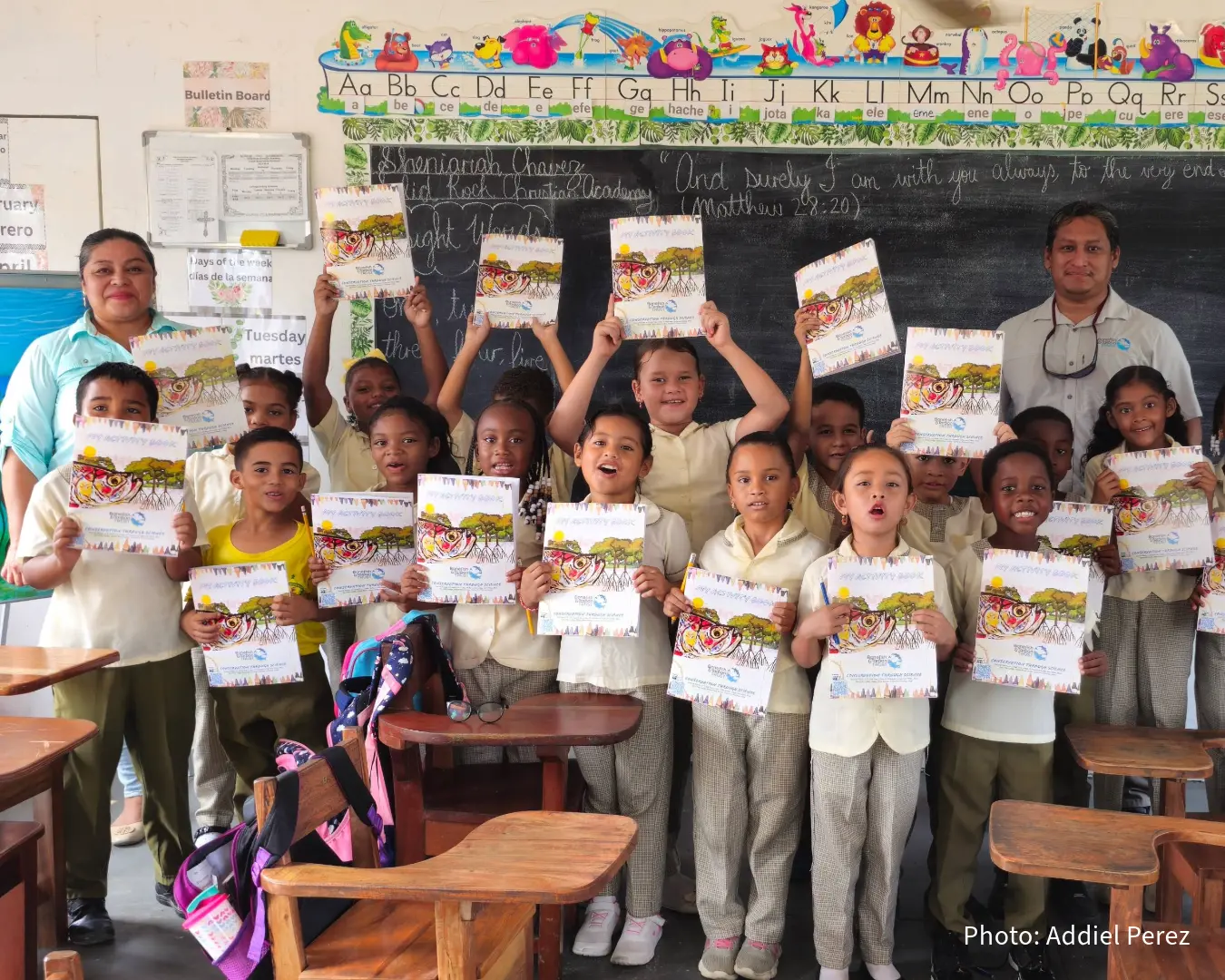
Youth Education Campaign Launched in Belize
BTT brought flats fisheries education to students across Belize in 2024! Staff held 66 country-wide presentations in primary schools in coastal communities with the support of the Ministry of Education, Culture, Science and Technology (MOECST). BTT’s educational booklets and presentations taught students about the importance of protecting flats habitats. Students also learned about the role habitats such as mangrove forests play in the life cycles of tarpon, bonefish and permit. To date, the education campaign has reached approximately 6,500 students and 530 teachers.
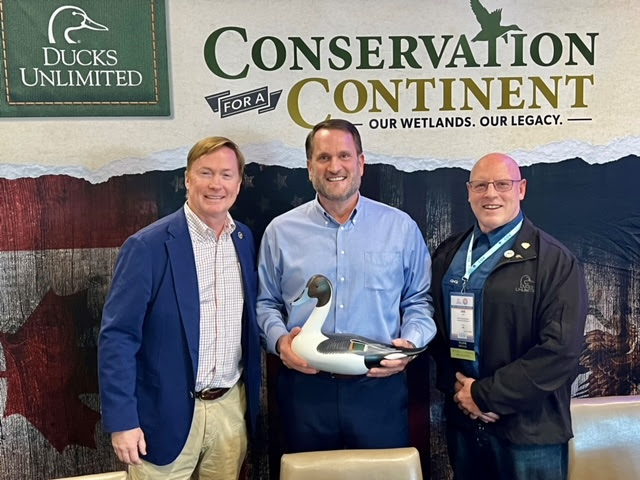
Ducks Unlimited and BTT Collaborate on Wetlands Restoration
BTT, Ducks Unlimited and Ducks Unlimited Mexico (DUMAC) signed in 2024 a three-year Memorandum of Understanding to restore, conserve and protect coastal wetlands in Mexico. The initial area of focus will be along the Mexican Yucatán, where work is already underway by DU Mexico to restore altered hydrology and revive the mangrove ecosystem. The restoration will benefit waterfowl as well as tarpon.
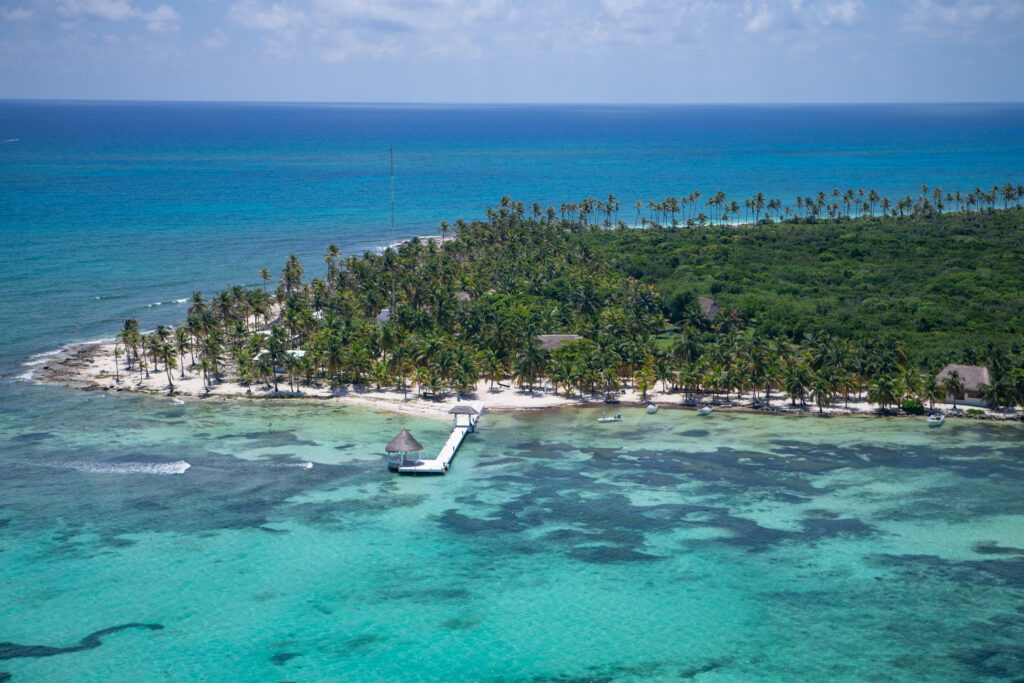
BTT Partners with Mexico’s Casa Blanca and Playa Blanca Lodges
BTT partnered in 2024 with two of Mexico’s leading fly-fishing lodges, Casa Blanca and Playa Blanca, to advance science-based conservation beneficial to Ascension Bay’s flats fishery and the surrounding region. The agreement includes plans to conduct research that will guide future conservation actions and management decisions. BTT and the lodges will also collaborate on angler and guide education programs that promote proper fish handling practices.
These are just a few of our recent conservation achievements, made possible by generous members like YOU!
Thank you for investing in the future of our fisheries.
To make a year-end donation to BTT, please click here. To join or renew your membership, please click here.

